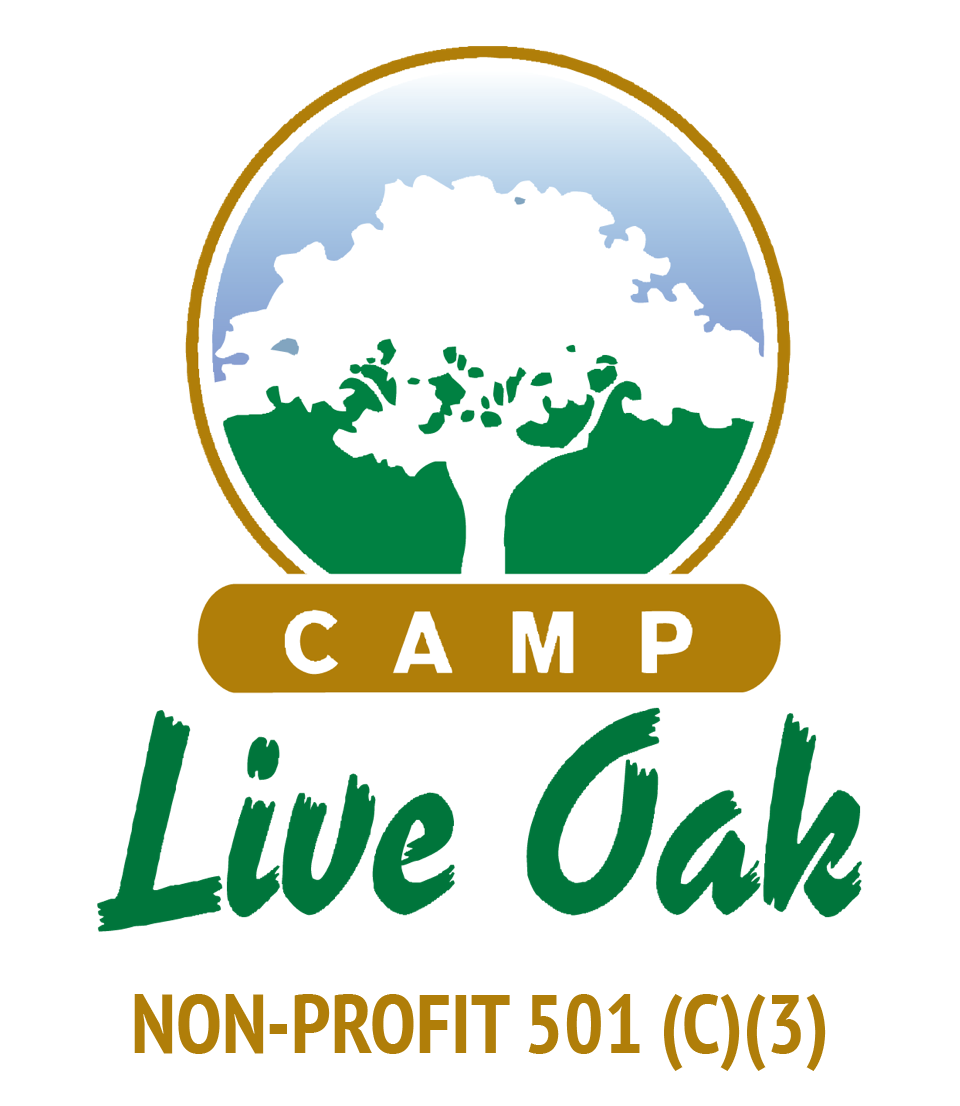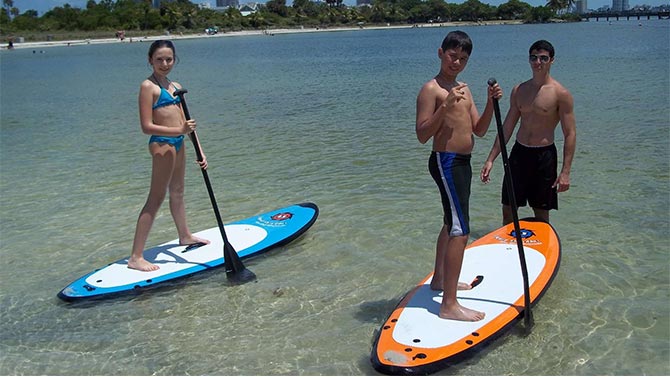Some of the most important safety tips for paddle boarding with kids in Fort Lauderdale include using the right gear, watching out for the weather and providing proper instructions.
Kids love paddle boarding in Fort Lauderdale, where the waters are almost always warm and there are a variety of water types to paddle in. We have access to calm lake waters (perfect for beginners) and choppy ocean waters for more experienced paddleboarders.
Kids can start paddle boarding with an adult as early as 2 to 6 years old. Around age 7 kids are usually just big enough to handle a kid-sized paddle board and start coasting the water solo mission. Yet, as perhaps you’ve seen, it’s not uncommon for kids much younger to already confidently pilot their own paddleboard. It all has to do with your child’s comfort level and experience as to when they are ready to man their own paddle board.
Youth Paddle Boarding Safety Tips
There are endless opportunities to go paddle boarding in Fort Lauderdale, from the miles of coastline to the more placid lake waters that snake through the local landscape. When paddleboarding with kids it’s extra important to take every safety precaution possible.
Here are some important safety tips to remember when paddle boarding with kids.
#1. Watch The Weather
If it’s incredibly windy or it looks like a storm is blowing in, you might want to save paddle boarding for another day. When kids are involved, you can never play it too safe. Plus, windy weather makes it difficult for even the strongest (and grown up) paddle boarders to stay on. If the wind is expected to pick up, but hasn’t hit land yet, keep kids close to the boat dock or shore. That way, when the winds do pick up you can quickly move out of the water and towards safety.
#2. Always Outfit Kids In Safety Vests
No matter how calm or shallow the water may be, kids should wear inflatable water active inflation vests whenever they go paddle boarding. Vests should be inspected prior to use to ensure they are in good working condition. While the CO2-inflated belt-pack PFD is popular amongst adults, they are not certified for children under 18-years-old to use.
#3. Get The Right Size Paddle
Your child is going to need a paddle that is proportionate to their body size in order to provide a comfortable and safe experience. If the paddle is not the right size it’ll make it difficult for them to control their boat.
#4. Start On Flat Water
Your child’s first chance at paddle boarding will go smoother if it occurs on flat water as opposed to choppy ocean waters. It’s much easier to stay on and steer a paddleboard when you are on placid waters.
You should only paddleboard with kids in ocean waters if they have plenty of experience, the waves are no more than a few feet high and there are no large crowds to steer around.
#5. Provide Simple & Easy To Follow Instructions For First Time Paddleboarders
Start by showing kids how to paddleboard on land, have them practice the motions and get comfortable standing on the board and using the paddle. Don’t overload them with lots of instructions just before putting them in the water.
There are ways to provide simple yet effective instructions for paddleboarding. We know it can be hard, but avoid micromanaging as much as possible. Instead find a safe space where kids can learn from their mistakes without getting hurt.
#6. Make Sure Your Child Is Ready For Paddle Boarding
How comfortable is your child in and around the water? It takes a certain amount of water experience and comfort to confidently climb on a paddleboard. Your child should have the appropriate motor skill development in order to paddleboard without help from an adult.
Benefits To Paddle Boarding For Kids With Camp Live Oak
At Camp Live Oak, we foster a fun and safe environment for kids learning how to paddle board as well as more experienced paddleboarders. Our ACA-accredited camp stops at nothing to follow all of the latest safety guidelines and regulations, providing your child with one of the safest ways to experience the thrill of paddle boarding.
Forget buying your own equipment, we have everything your child needs to safely pilot the water. Plus, we incorporate education into every activity our campers participate in. It never feels like learning, but we look at every activity as a chance to teach kids new things and broaden their worldview.

